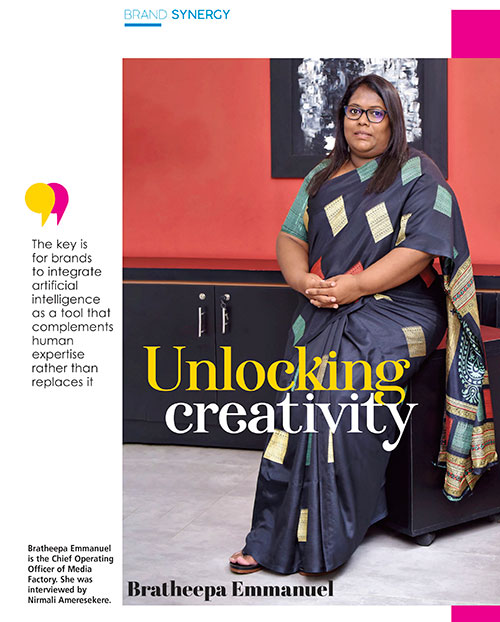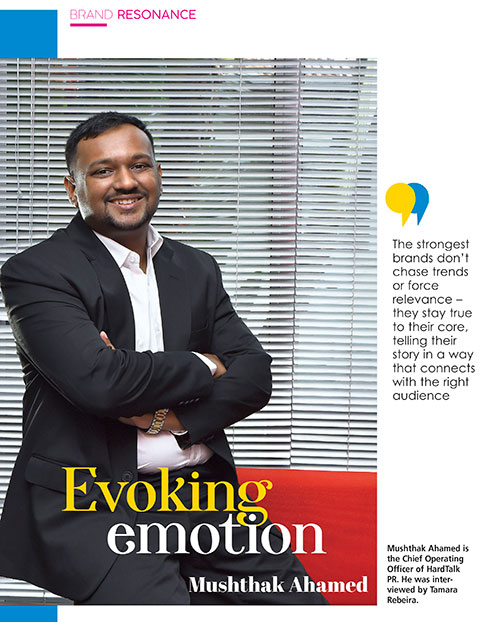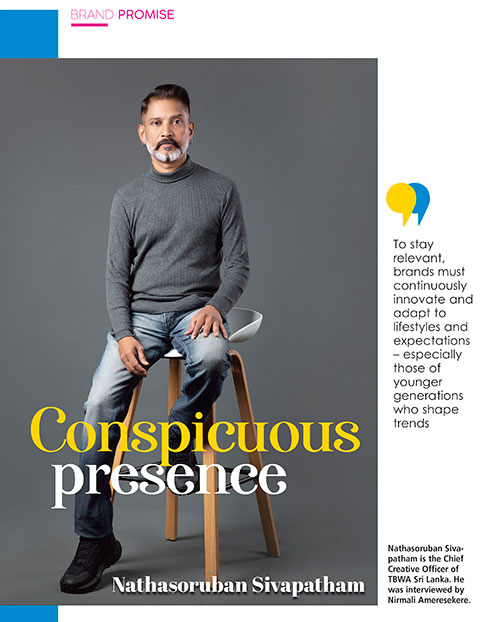LEADING BRANDS PROFILE
Elephant House

Q: Could you share the organisation’s key milestones in its journey?
A: Founded by Arthur Von Possner in 1866 as the Colombo Ice Company, Elephant House has a rich history spanning over 150 years. Since then, the company has successfully navigated the consumer food and beverage (F&B) industry.
Elephant House (Ceylon Cold Stores a.k.a. CCS) was first listed on the Colombo Stock Exchange (CSE) in 1970 and came under the umbrella of John Keells Holdings in 1991.
We’ve enjoyed strong brand health across our core brands such as Elephant House Cream Soda, which has consecutively won the SLIM-Nielsen People’s Award for Beverage Brand of the Year for 15 years. Both Cream Soda and Necto have won Youth Beverage Brand of the Year many times.
Other milestones include the establishment of CICL (Colombo Ice Company) – a state-of-the-art ice cream manufacturing plant at the Seethawaka Export Processing Zone for Impulse ice cream.
This is the largest of its kind in Sri Lanka, and one of the most modern and sophisticated plants in Asia. Moreover, the Elephant House Ranala plant recently unveiled a state-of-the-art warehousing unit equipped with advanced and sophisticated warehousing facilities.
Q: What are the brand’s prospects going forward?
A: In response to shifts in consumer behaviour, we are carrying out extensive product development to provide newer product categories that offer novel experiences to consumers.
We’re also confident that the bottled water market in Sri Lanka is poised for exponential growth; and we are are carrying out focussed portfolio expansion in these categories.
There are exciting developments in the world of F&B – including sustainable packaging and modern infrastructure for recycling to name two, which we’re pursuing very passionately.
Q: And what is the impact of the pandemic on brands?
A: The industry is predominantly driven by impulsive consumer decisions so the pandemic induced reduction of consumer mobility has posed challenges for our brands.
However, we identified one strong notion: consumers resort to brands they know well and trust.
This trust created an opportunity for our household brands to stand tall among the rest. We carried out a significant shift in brand building, focussing on delivering positive, helpful and informative messages to consumers through our brands.
The pandemic also pushed brands to find unexplored avenues to reach consumers. Due to the agility of our operations and business models, Elephant House was one of the first converters to e-commerce.
We also noted that consumers expected their favourite brands to rise to the occasion and help the community. In lieu of this, and staying true to our core values, we carried out a plethora of activities to respond to this consumers’ voice.
Q: What role can brand investments play in accelerating business recovery?
A: Brands are one of the most important assets within any consumer facing organisation; hence, business recovery post-pandemic would have to mean brand recovery as well.
We operate in an environment where there are multiple macro and microeconomic factors impacting brands, as well as cost structures. So brands need to be extra cautious when allocating resources to ensure we invest in avenues that will yield the highest returns in the short to medium term.
On a positive note, general consumption is growing, consumer mobility is improving, tourism is recovering and consumer confidence is showing signs of growth. Therefore, brands that obtain the highest consumer mind share – and touch consumers’ hearts – will win the recovery game.

Q: How important is reputation and integrity for your brand?
A: Operating in the consumer goods sector where our brands meet millions of consumers every day, they need to believe that the brand says what it does and does what it says.
If either of these linkages is broken at any level in the value chain, it would create devastating results to the brands and the overall business.
Elephant House has implemented many quality and process controls, across all its processes and people in the value chain, sparing no expense. This is to ensure that the best product is delivered to the end consumer under best possible circumstances.
Along with other companies of John Keells Holdings, we follow responsible marketing communications practices based on the principles of the International Chamber of Commerce (ICC) code on marketing and communications, and aligned with our group values – viz. innovation, trust, excellence, integrity and caring.






